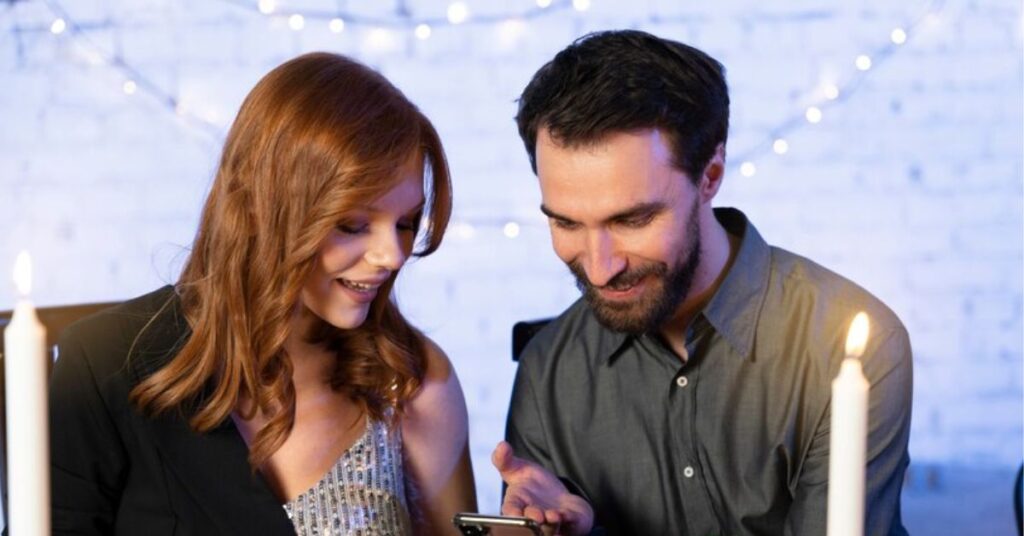In 2024, nearly a third of all relationships started on a dating app, 70% of which led to marriage or another serious relationship. These statistics underscore apps’ effectiveness in connecting people with compatible partners, including those exploring nontraditional arrangements. Some users of mainstream apps like Tinder are looking for untraditional relationships, but such apps can feel like a perpetual loop of “Hey” and swiping through copy-pasted bios. More and more people are looking for something beyond gym selfies that transition into unimaginative flings.
Niche Sites Help Bring the Unconventionally Minded Together
These apps achieve this in different ways, such as gauging compatibility and cutting off small talk. Niche apps match people based not only on looks but also on interests and values. They verify profiles so users feel safer swiping away.
Some apps bring mystery and playfulness into romantic interactions with games, icebreakers, and modes that conceal details until both parties show interest. This gamified approach makes the experience more engaging and less transactional.
Apps that allow people to explore unconventional relationships boast solid privacy policies. The best ones target mature individuals who are not looking for judgment but specific relationship dynamics. They are niche, bold, and highly refreshing for users willing to explore.
Facilitating the Mainstreaming of Unconventional Relationships
Dating apps help take unconventional relationships mainstream by catering to people who are open to experiencing new interactions. Those who enjoy or want to try ethical non monogamy, polyamory, and other alternative structures will find a good dating base on these apps, which host a vast glossary of sexual and romantic preferences for people to include on their profiles. They create a “safe space” for users to whom nontraditional connections appeal. They can create more accepting and genuine communities, reducing the judgment and stigma sometimes associated with these preferences and lifestyles.
The profiles on these platforms often feature detailed questionnaires, allowing users to express their unique needs and expectations openly. This transparency helps like-minded individuals connect more authentically, fostering relationships based on shared goals and values rather than superficial matches.
Unconventional Structures in Numbers
The CEO of Feeld, one dating app that caters to the open-minded, reported a 500% increase in the number of users including the terms “polyamorous” and “ethically non-monogamous” in their profiles from 2021 to 2024. OKCupid reported a 45% increase in profile mentions of nonmonogamy-related terms between 2021 and 2023.
The numbers aren’t as high in the broader population, but they’re on the rise. Five percent of adults told polling firm YouGov they were in open relationships in December 2020, and 3% were in polyamorous relationships. Three years later, those numbers had reached 6% and 4%, respectively.
The increase in these numbers highlights a growing acceptance of alternative relationship structures, driven in part by dating apps that provide the tools and spaces to explore these arrangements.
Introversion, Non-Monogamy, and Dating Apps
Not all dating sites are created equal for introverts. Tinder’s “swipe left” model and hookup-focused interface are a disaster waiting to happen for shy singles. When you’re introverted and interested in a non-monogamous relationship, finding like-minded people can be even more challenging. Finding a partner for a traditional setup is hard enough for many introverts.
Apps like OKCupid, Hinge, and Match are much more suitable for introverts. These dating apps encourage users to share more information about themselves, from lists of interests and lengthy profile bios to deal-breakers. The more thoughtful design of these platforms allows introverts to engage meaningfully without the pressure of instant, surface-level interactions. This user-centered approach makes it easier for introverts to navigate dating while remaining true to their personalities.
Cultural Shifts Driving New Dynamics
The growing use of dating apps for unconventional relationships reflects broader cultural shifts. As society becomes more accepting of diverse lifestyles, there is increasing room for individuals to explore nontraditional connections without fear of judgment. This normalization has been aided by mainstream media and pop culture, which often highlight stories of polyamory and open relationships in a positive light.
Dating apps act as catalysts for these cultural shifts, offering platforms where users can feel empowered to define relationships on their terms. They’ve opened pathways for people to find communities that share their values, helping to reduce the stigma historically associated with alternative relationship structures.
Final Thoughts
Dating apps have revolutionized the way people connect, ushering in an era where unconventional relationships are not only possible but are becoming increasingly mainstream. By offering tailored algorithms, inclusive spaces, and platforms for niche communities, these apps have expanded the boundaries of traditional dating to encompass diverse needs and lifestyles.
This shift breaks down societal stigmas, normalizes alternative relationship structures, and fosters deeper connections in previously unimagined ways. As technology evolves, dating apps are poised to play an even more significant role in redefining human relationships, bridging gaps, and celebrating individuality in all its forms.







